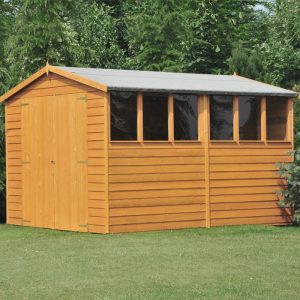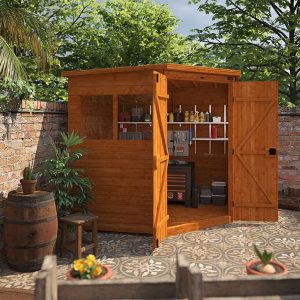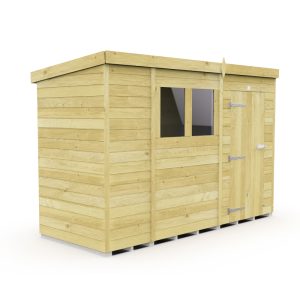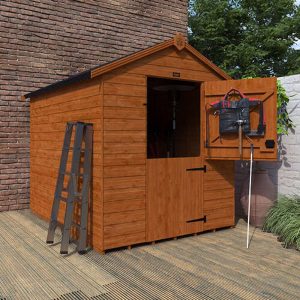Embrace the Holt 12′ x 4′ Handsworth Loglap Pressure Treated Pent Summer Shed designed to endure the harsh British weather, enabling year-round enjoyment of your Summer House. Crafted from pressure treated tongue and groove cladding with reinforced materials for enhanced durability, this shed is engineered to resist weather impacts. The robust floor ensures you can store heavy items without worries. If the Summer House doesn’t meet your needs, explore our range of sizes and styles. This versatile building offers various window arrangement options to maximize natural light intake. Kindly be informed that this item is dispatched through a courier pallet delivery service, delivering the pallet to your curb. All necessary fixtures and assembly instructions are provided.















































